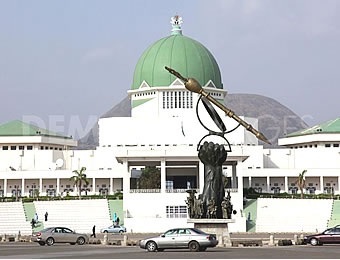
Guardian / Nigeria: Chairman of the Senate Committee on Ethics, Privileges and Public Petitions, Samuel Anyanwu, has described the reported ‘Emergency Power Bill’ being packaged for the President as an attempt to kill the institution of the National Assembly.
Anyanwu, who spoke yesterday in an interview with journalists at the National Assembly, said the Bill, if approved, would confer absolute powers on the President, a development he said, would enthrone full-blown dictatorship in Nigeria.
According to the lawmaker, President Muhammadu Buhari currently wields sufficient powers and does not require additional ones to tackle the nation’s economic problems, adding that the bill would amount to an attempt to usurp the responsibility of the apex legislative body.
He said: Well, I haven’t seen any bill to that effect, but let me say that I’m for any bill that will enhance the economy of the country. At the same time, any bill that will give absolute power to the President, which by the way he already has, and doesn’t need extra powers, would lead to dictatorship. I think we shouldn’t be talking about emergency powers for the President.
“When you are talking of emergency powers, it means you are already taking the responsibilities and functions of the Legislature, which of course, I wouldn’t subscribe to because what it means is that they want to kill this institution
The media early this week was awash with reports of impending move by the President to solicit emergency powers from the National Assembly in a bill entitled “Emergency Economy Stabilisation Bill 2016.”
According to the reports, the bill, which will be sent to the National Assembly by the President upon resumption from its yearly recess, is seeking unfettered powers to set aside some extant laws and simultaneously be empowered to come up with an economic recovery initiative within the next one year.
The bill allegedly seeks, among others, to empower Buhari to abridge the procurement process with a view to guaranteeing stimulus spending on critical sectors of the economy; make orders to favour local contractors/suppliers in contract awards; abridge the process of sale or lease of government assets to generate revenue; and allow virement of budgetary allocations to projects that are urgent without a recourse to the National Assembly.
It also seeks to amend laws such as the Universal Basic Education Commission (UBEC) Act so that states that cannot access their cash trapped in the commission’s accounts as a result of their inability to meet the counterpart funding can do so.


